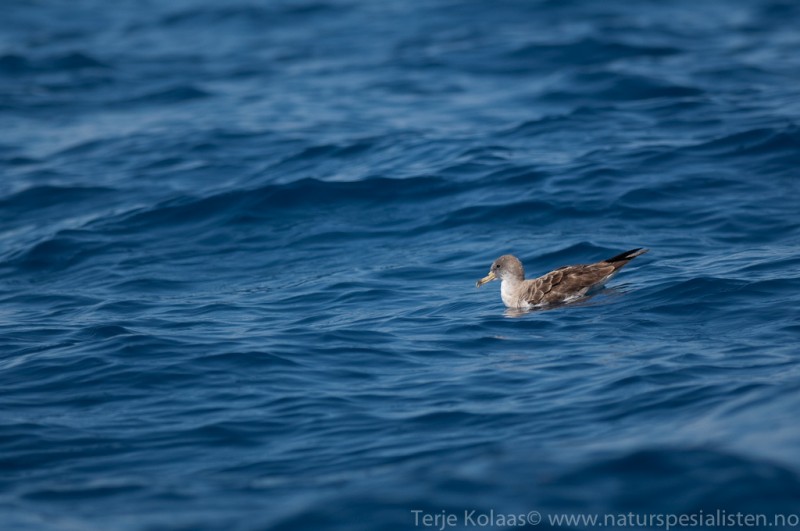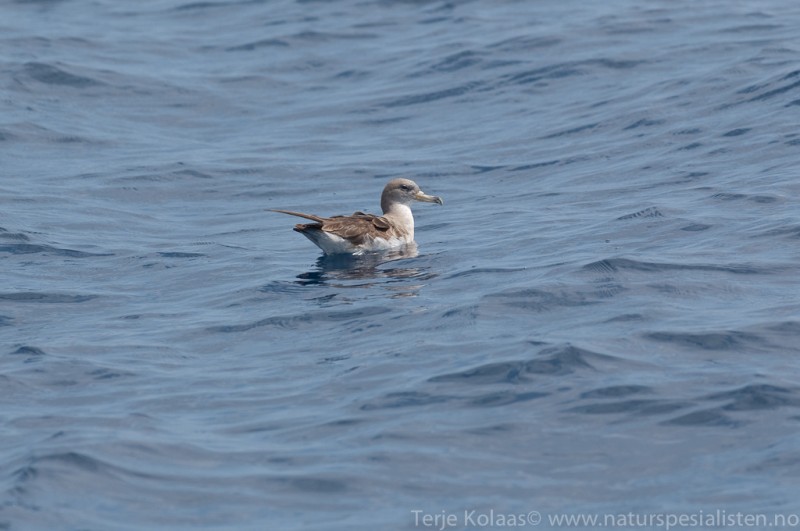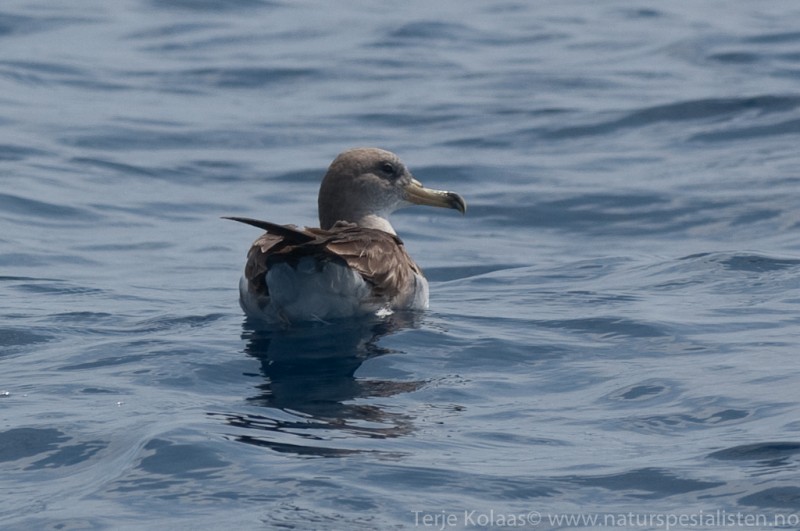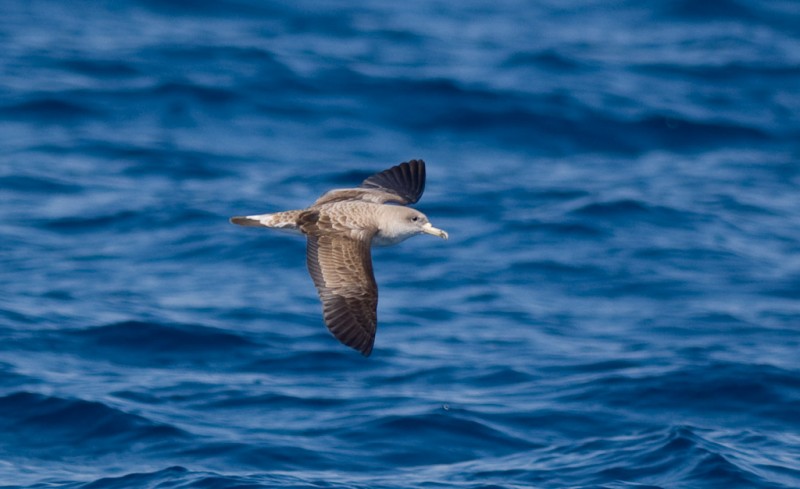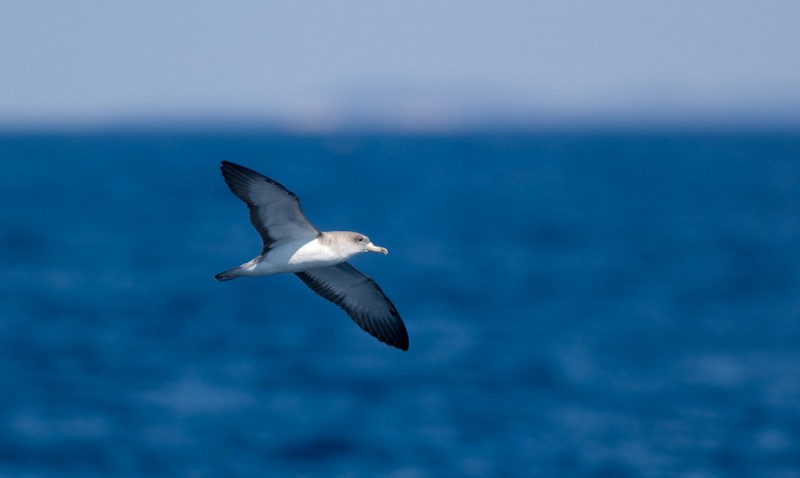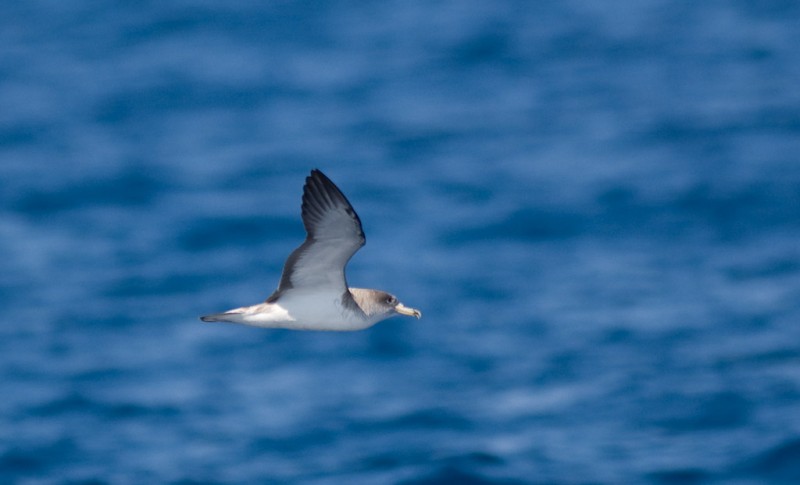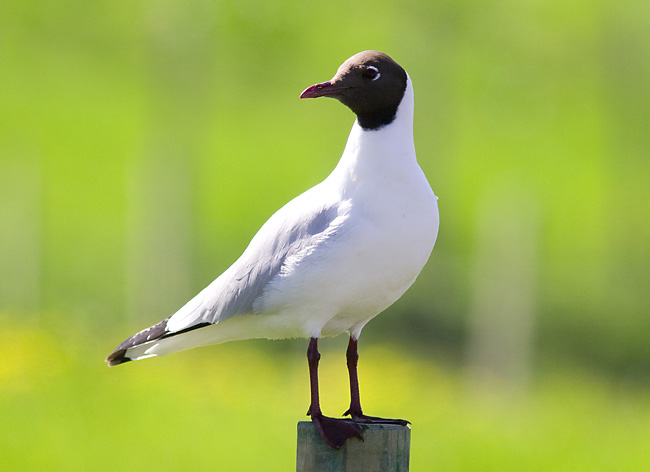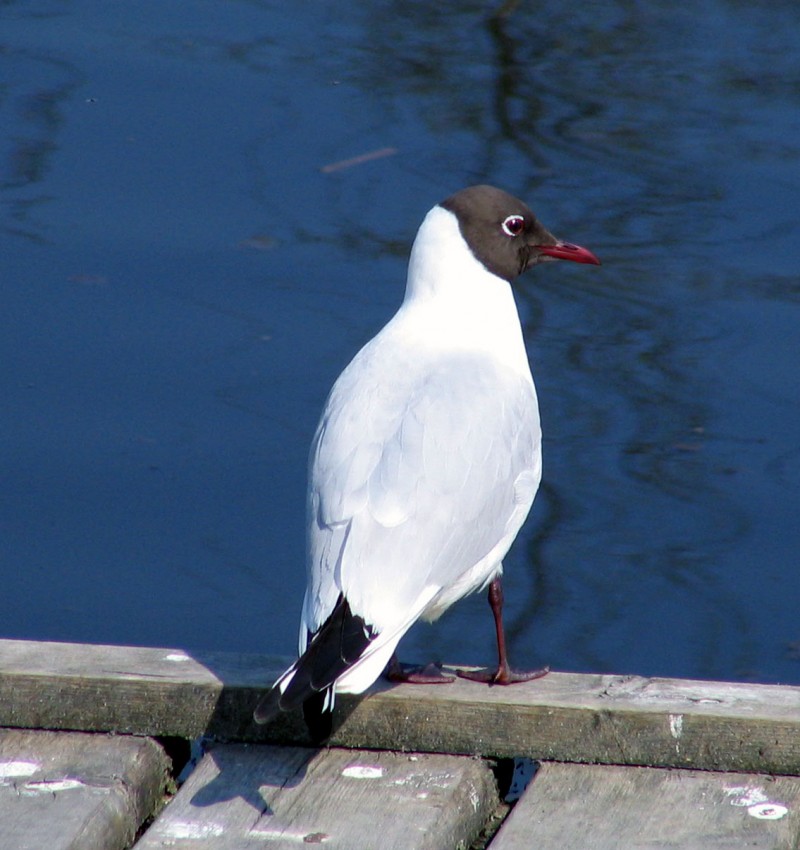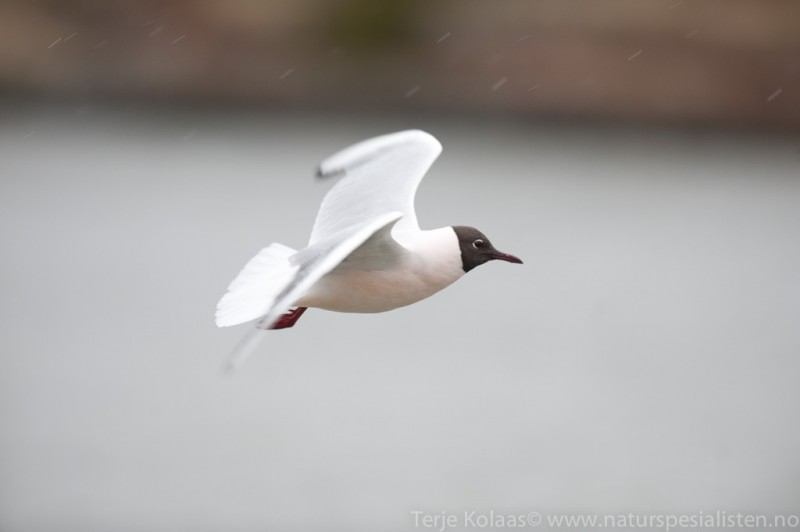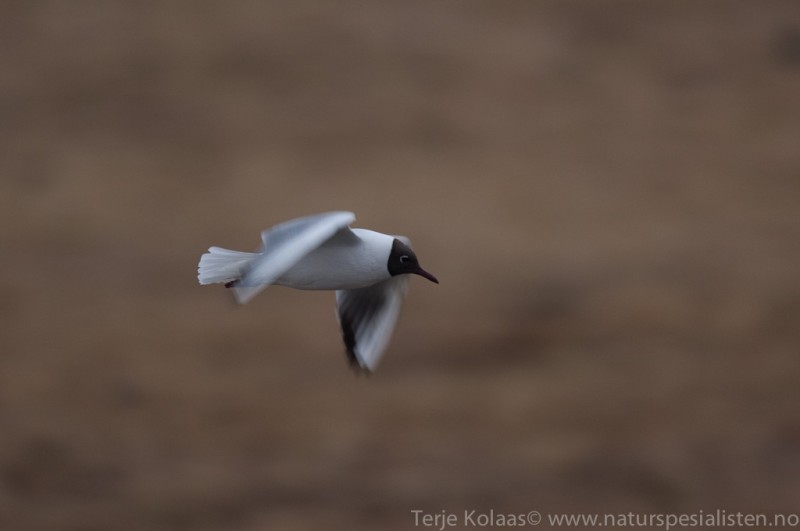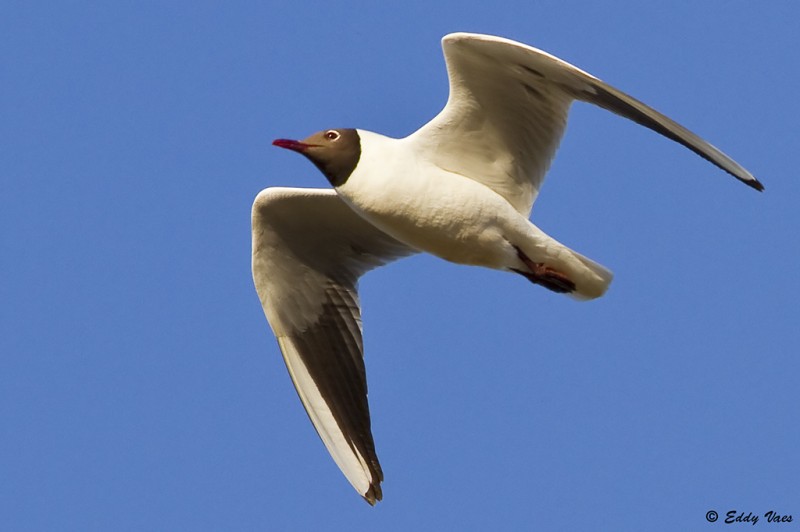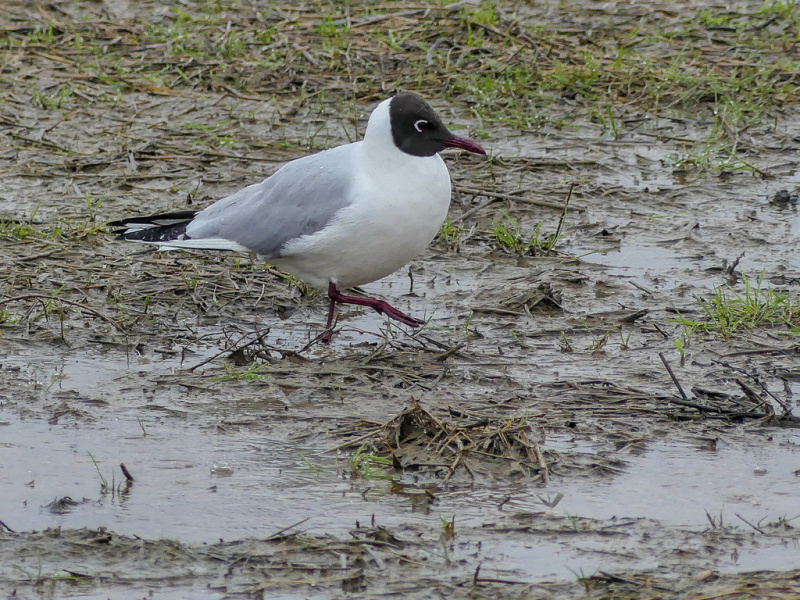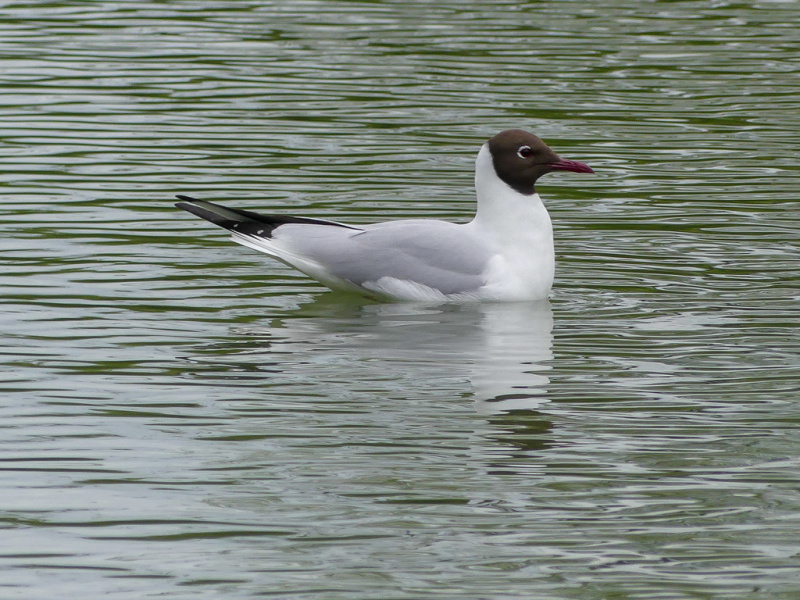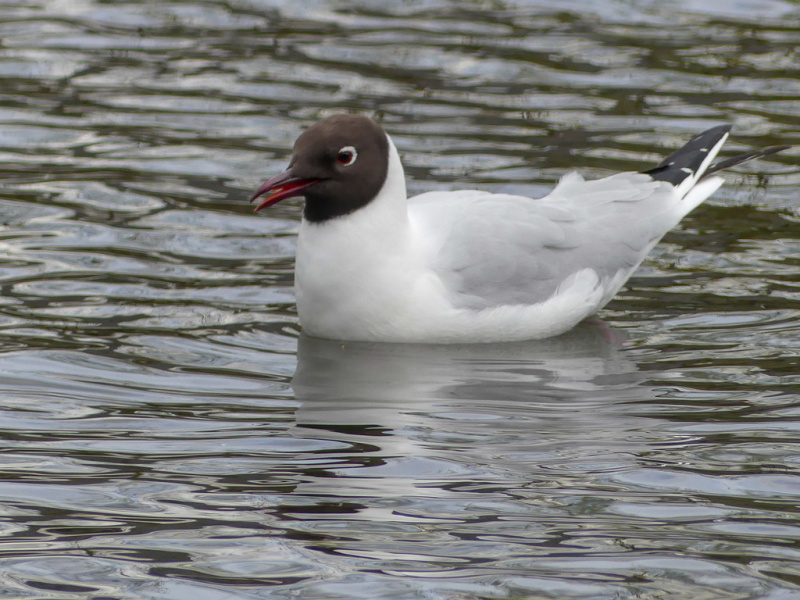Cory's Shearwater (Calonectris diomedea)
Black-headed Gull (Chroicocephalus ridibundus)
A large shearwater with pale upperparts and heavy, yellowish bill. Large grey head. The grey neck forms a diagnostic, contrasting line from wing base to base of bill (most other shearwaters have white neck-sides). Armpits usually pure white. Underside of wings white, framed by black flight feathers. Flight action calm and distinct. Long glides alternates with 3-4 slow wingbeats. Wingtips always bent downwards, and wings slightly angled back. Often soars. Differs from Fulmar in dark tail, grey head, long, narrow wings and longer bill. The two subspecies C. diomedea and C. borealis, are somtimes treated as different species. Field identification of these usually impossible, and requires ideal conditions. Hand of borealis is darker due to no white fringes to primaries. In diomedea the white in the coverts extends in a white wedge into the hand, through the base of the primaries.
Sound:Very vocal at breeding ground. Calls with a very nasal, comical, mewing "ke-kooeee", ending with falling pitch, like a releasing sigh or moan. Sometimes reltively pure, other times very hoarse and raucous.
At breeding ground (C. d. borealis):
Distribution:
Wikipedia: map (se also Xeno-canto below)
Ecology:Birdlife ecology
Links:
Observation.org Latest observations
Image search Flickr NB! May give other species
CCChocolate-brown hood in adult plumage (seemingly black at a distance), but head only with dark markings in winter and juvenile plumages. Underparts of inner primaries dark grey. First few primaries white with black tip, both on upper side of wing and under. Last character conspicuous in all plumages, but slightly less obvious in juveniles due to larger dark area of wing-tip. Slender-billed Gull and Bonaparte's Gull show similar white first primaries, but differs in long and slender head profile and white underparts of hand respectively.
Sound:Quite vocal, especially at breeding ground. Distinct, harsh calls. A rasping "kreearr", and shorter, sharp warning calls; "kek".
Contact call:
Distribution:
Xeno-canto: map
Ecology:Birdlife ecology
Links:
Observation.org Latest observations
Image search Flickr NB! May give other species
CC
 English
English Albanian
Albanian
 Armenian
Armenian
 Bulgarian
Bulgarian
 Catalan
Catalan
 Croatian
Croatian
 Czech
Czech
 Danish
Danish
 Dutch
Dutch
 Finnish
Finnish
 French
French
 Georgian
Georgian
 German
German
 Greek
Greek
 Hungarian
Hungarian
 Italian
Italian
 Latvian
Latvian
 Lithuanian
Lithuanian
 Macedonian
Macedonian
 Norwegian
Norwegian
 Polish
Polish
 Portuguese
Portuguese
 Romanian
Romanian
 Russian
Russian
 Sami : Lule sami
Sami : Lule sami
 Sami : North sami
Sami : North sami
 Sami : South sami
Sami : South sami
 Scientific names
Scientific names
 Serbian
Serbian
 Spanish
Spanish
 Swedish
Swedish
 Ukrainian
Ukrainian

